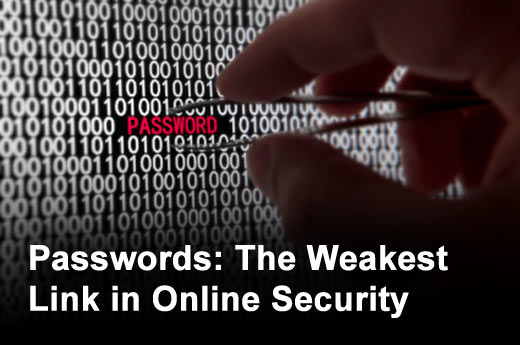One of the major risks of using the Internet is that your identity or accounts will be compromised. Many sites require you to register with a username or email address and password. If the password is guessed by someone else, it will let them in and they can access your details, pose as you, or spend your money! A beefy password is definitely important if you want to keep your personal details safe.
Another area where it’s important to be cautious is the password on your home computer. It doesn’t matter how good your security programs are on your computer – if a skilled hacker knows your password, they may be able to compromise your computer. Here are some tips to help you stay protected when browsing the Internet.
Always use a real password if it’s an option
Most sites will not let you in without a password, but never use the default password (for instance, your birthday or a word like “password”) if you have a choice. Some people just look for accounts with default passwords, since many people are too lazy to change this password. Even if you have a weak password, it’s still your own password and not a default.
Use different types of characters in your password
Where a password like “letmein” might have worked once, these common words and phrases are searched first when someone tries a brute force attack – which means they’re basically inputting a dictionary of common words and phrases to log in until something works. Using a variety of characters always helps. Instead of “wonderwoman” as a password, you might choose “W0nd3rwOm@n” as a much more secure alternative. Punctuation marks make it much harder to guess even an easy word.
Never use common passwords
Just like you don’t want to stick with the default password, common words should not be used as passwords. Many people use birthdays, names of family members and pets, their own name or username, favourite sports teams, single-word passwords that could be found in the dictionary, or words like “passwords” and easy sequences of numbers. Hackers target these passwords first.
Don’t use easy numbers
If you have to use a number as a password, avoid sequences or duplicated numbers. Passwords like 1234 and 1111 are the easiest to guess. Other passwords like 2580 are based on number pad layouts and are easy to guess, too. Instead, try combining two favourite two-digit numbers or simply picking a number and making your best attempt to memorize it.
Don’t use the same password on multiple sites
Most of us have heard the advice that we shouldn’t use the same password on different sites. If you tend to ignore this advice and use the same password, think about at least creating variations of the password. For example, if you use the password “R!ck@ndSt3v3” you could add a letter or word to the end based on the website the password is for. This would make your password “R!ck@ndSt3v3F” for Facebook, “R!ck@ndSt3v3T” for Twitter, and so on. This makes it much easier to remember unique passwords.
Make sure when you browse the Internet that you and your files are protected. Choosing strong passwords is a great place to start ensuring the safety of your accounts online. Nothing is worse than logging into a site and discovering that someone else has been there first!

